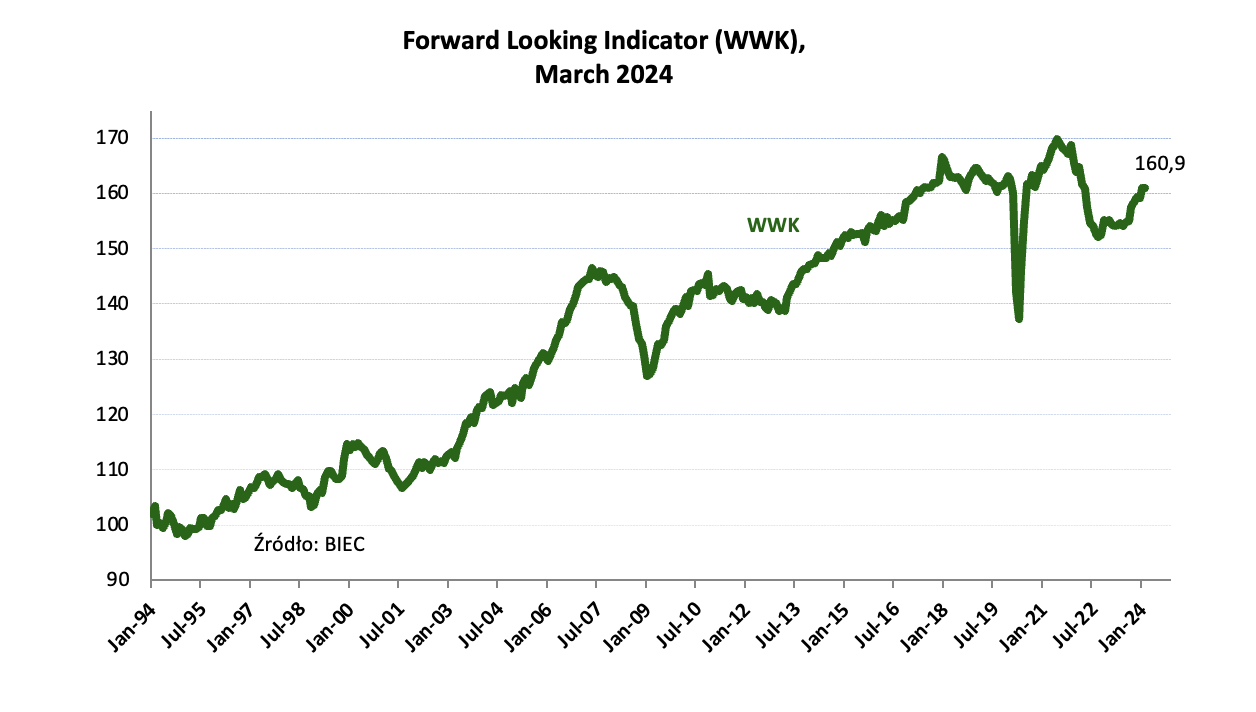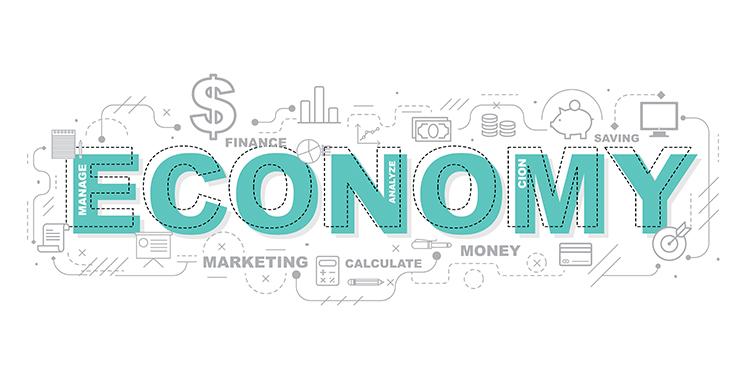Polish economy is driven by consumption
The Forward Looking Indicator (WWK), which reports on future trends in the economy in March 2024, did not change its value compared to the previous month. Four of the eight components of the indicator remained unchanged, two improved and two worsened compared to last month's value. The current state of the economy and its short-term prospects are still determined by domestic demand and mainly by private consumption. There are some signs of companies becoming more involved in investment, but so far these are only announcements without concrete actions.
For several months, there has been no significant breakthrough in the inflow of new orders in the manufacturing sector. This is particularly true of orders from foreign customers, where the downturn has continued since the beginning of last year. This is partly due to the poor condition of most developed European economies, including Germany in particular, and partly a result of the loss of competitiveness of our commodity offering as a consequence of rising costs, especially labour costs.
Inventories of finished goods in companies' warehouses are increasing, which does not bode well for production in the coming months.
There has been little improvement in the opinions of managers of manufacturing companies about their financial situation. The increase in labour costs has partly compensated for the fall in producer prices (PPI), which has somewhat stabilised finances in companies. However, there is still more than a 15% prevalence of companies reporting a continued deterioration in their finances over the percentage of companies reporting an improvement.
For another month in a row, we note no clear change in managers' assessments of the general economic situation and its development prospects. However, there was a slight improvement in entrepreneurs' opinions on capital expenditure planned for this year compared to last year. The advantage of the percentage of companies planning increased investment expenditure this year over those planning a reduction is 10 percentage points, an improvement of 3 percentage points on the situation a year ago. The change is small for the time being, but it is hoped that a gradual reversal of the previous negative trend in investment will begin in the second half of the year.
The M3 money supply increased again in real terms. The source of this increase was primarily household deposits. The increase in the minimum wage, an increase of more than 13% in wages and salaries and the payment of so-called thirteenth month allowances were the main reasons for the increase in deposits. In the following months, a significant part of this money will hit the market, which cannot fail to have an impact on inflationary processes.
Source: WWK and ISBnews









